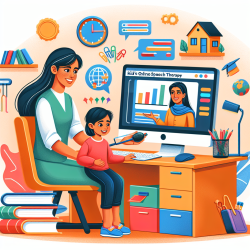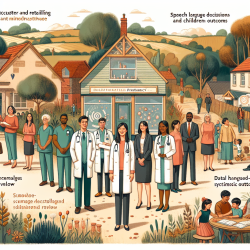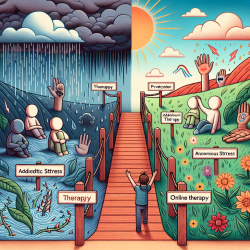Are you an online therapist looking to enhance your skills and effectiveness? Recent research has shown that implementing a training program based on maker education can significantly improve various competencies. In this blog, we’ll explore the findings of a study titled "Effectiveness of a training program based on maker education for baccalaureate nursing students: A quasi-experimental study" and how you can apply these insights to your practice.
What is Maker Education?
Maker education is a hands-on, project-based learning approach that emphasizes creativity, collaboration, and practical problem-solving. Originating from the maker movement, this educational method integrates various disciplines, encouraging students to explore, innovate, and apply new skills in real-world contexts.
Key Findings from the Study
The study focused on nursing students and found significant improvements in several areas after implementing a maker education-based training program:
- Creativity: Students' creative thinking skills saw a marked increase.
- Learning Interest: Engagement and interest in learning were significantly higher.
- Cooperative Learning Skills: Teamwork and collaborative problem-solving abilities improved.
- Scientific Research Ability: Students gained better skills in conducting and understanding research.
- Information Attainment: The ability to find, use, and manage information was enhanced.
How Can Online Therapists Benefit?
While the study was conducted with nursing students, the principles of maker education can be adapted to online therapy. Here’s how:
Enhancing Creativity
Incorporate creative activities into your sessions. Use tools like mind maps, brainstorming exercises, and creative problem-solving tasks to stimulate your clients' imagination and innovative thinking.
Increasing Engagement
Interactive and hands-on activities can make your sessions more engaging. Consider using digital tools and resources that allow clients to actively participate in their therapy process.
Promoting Collaborative Skills
Encourage group activities or collaborative projects where clients can work together to solve problems or achieve common goals. This can enhance their social skills and teamwork abilities.
Building Research Skills
Teach clients how to conduct basic research, evaluate sources, and apply findings to their situations. This can empower them to make informed decisions and become more self-reliant.
Improving Information Management
Help clients develop skills in finding, organizing, and using information effectively. This can include training in digital literacy and the use of online resources.
Encouraging Further Research
The study highlights the potential benefits of maker education, but more research is needed to fully understand its impact in different contexts, including online therapy. As a practitioner, you can contribute to this growing field by experimenting with maker education principles in your practice and sharing your findings with the community.
To read the original research paper, please follow this link: Effectiveness of a training program based on maker education for baccalaureate nursing students: A quasi-experimental study.










